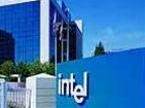
AMD had claimed that its processor would outpace Intel's by 25 to 30 per cent on certain workloads.
The chipmaker has consistently highlighted Barcelona's performance on the SpecFP_rate2006 benchmark, which shows the performance of floating point calculations common in scientific modelling applications.
But Skaugen argued that the benchmark represents only three per cent of the workloads in the enterprise, and that companies depend mostly on a chip's performance for Java, web, transaction and integer applications.
AMD released a set of nine benchmarks on Monday including SpecFP_rate2006. All benchmark data was based on a 2GHz Barcelona.
Compared to the best published benchmark score for Intel's quad-core Xeon, AMD outperformed the competition on all benchmarks.
Conspicuously missing, however, is the Opteron's score for a benchmark that measures integer performance, a type of workload that emphasises parallel tasks.
AMD executives have admitted that Intel demonstrates better performance on the benchmark, attributing it to the Xeon's larger cache memory.
AMD does have a more elegant design for its quad-core processor, however. The firm has joined four cores on a single die, whereas Intel is essentially putting two dual-core chips in a single package.
But AMD puts itself at a potential disadvantage as it will ship only 2GHz Opterons at the launch, while its competitor already offers 3GHz models.
Intel is also scheduled to release its Penryn 45nm processors early next year, which are expected to offer an additional performance boost.


.png&h=140&w=231&c=1&s=0)
_(23).jpg&h=140&w=231&c=1&s=0)






 iTnews Benchmark Awards 2026
iTnews Benchmark Awards 2026
 iTnews Executive Retreat - Security Leaders Edition
iTnews Executive Retreat - Security Leaders Edition
 iTnews Cloud Covered Breakfast Summit
iTnews Cloud Covered Breakfast Summit
 The 2026 iAwards
The 2026 iAwards












_(1).jpg&h=140&w=231&c=1&s=0)



